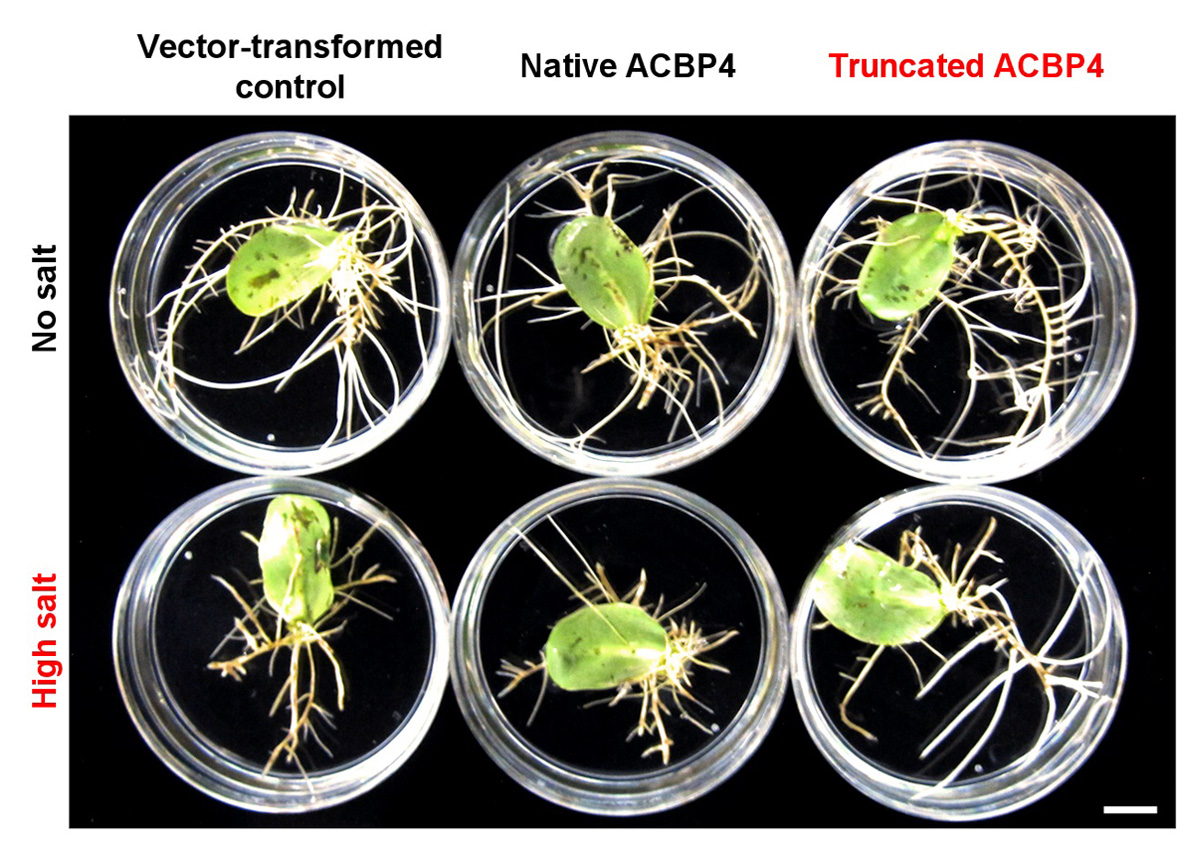
HKU Scientists Discover Mechanisms to Make Salt Tolerant Soybeans
January 19, 2022| |
Scientists from the University of Hong Kong have identified the molecular mechanisms that activate salt-induced adaptive changes in soybeans, which could lead to finding solutions for saline agriculture.
The research team examined soybean roots in salt solution and found Class II ACBP3 and ACBP4 variant proteins smaller than the native forms emerged during the first few hours of treatment. The researchers also found that the overexpression of the native and truncated ACBP4 rendered soybean hairy roots more salt-sensitive and salt-tolerant than the control plant.
Similarly, transgenic Arabidopsis overexpressing truncated ACBP3 were more salt-tolerant than the control, while transgenic Arabidopsis overexpressing native ACBP3 and ACBP4 were more salt-sensitive.
For more details, read the news release on the University of Hong Kong website.
| |
Biotech Updates is a weekly newsletter of ISAAA, a not-for-profit organization. It is distributed for free to over 22,000 subscribers worldwide to inform them about the key developments in biosciences, especially in biotechnology. Your support will help us in our mission to feed the world with knowledge. You can help by donating as little as $10.
-
See more articles:
-
News from Around the World
- Community of Experts Presents Progressive Regulatory Approaches for Animal Biotech
- Kenyan Livestock Farmers Appeal for Importation of GM Animal Feeds
- Discovery Finds Plants Rely on CLASSY Gene Family to Diversify their Epigenomes
- Gene Discovery to Make Superman Sorghum that Resists Broad Spectrum of Fungi
- Researchers to Develop Roundworm-Resistant Sweet Potatoes
- HKU Scientists Discover Mechanisms to Make Salt Tolerant Soybeans
- APAARI Presents Lessons on GM Maize Adoption from the Philippines
- US Supports Further Research of Bt Eggplants in Bangladesh, Philippines
-
Research Highlights
- Chinese Scientists Discover Universal Key to Solve Self-Incompatibility of Potatoes
- Researchers Produce Quinoa Hybrids Thanks to Genome Sequencing
-
Plant
- CRISPR-based Tool Reverses Insecticide Resistance in Fruit Flies
- South African Seed Growers Appeal for NBT Not to be Regulated as GMOs
-
Read the latest: - Biotech Updates (February 11, 2026)
- Gene Editing Supplement (January 28, 2026)
- Gene Drive Supplement (February 22, 2023)
-
Subscribe to BU: - Share
- Tweet

